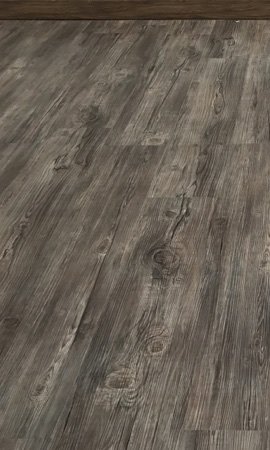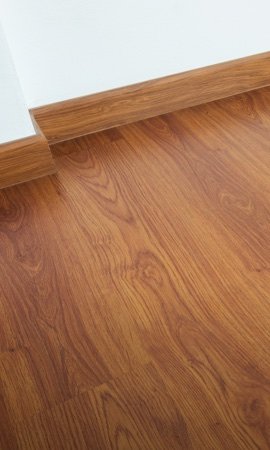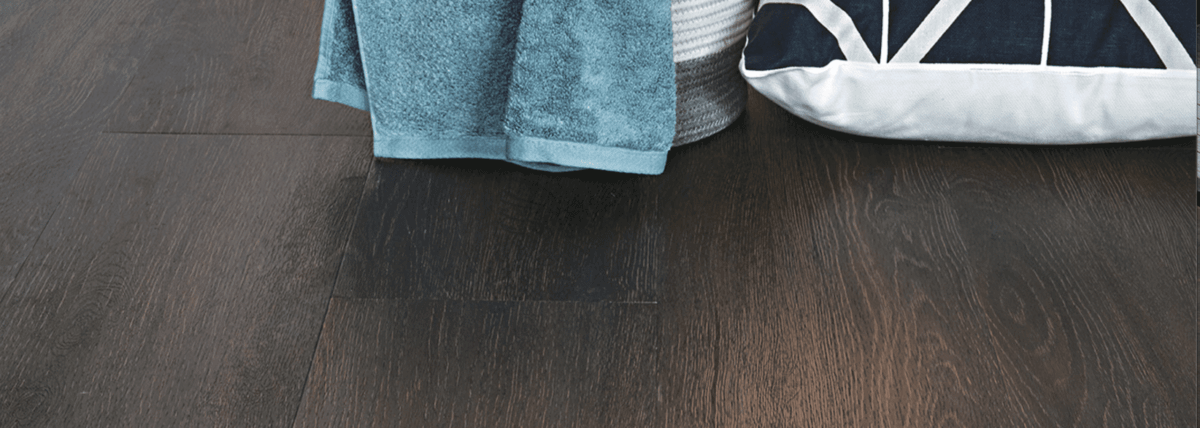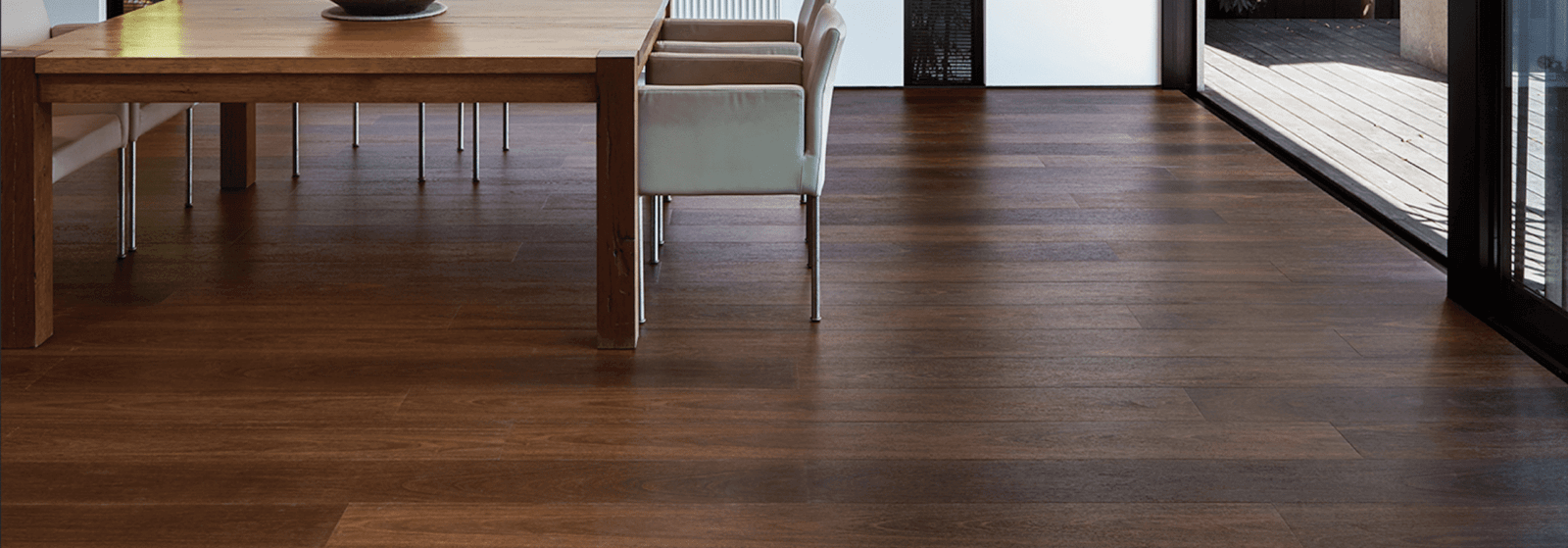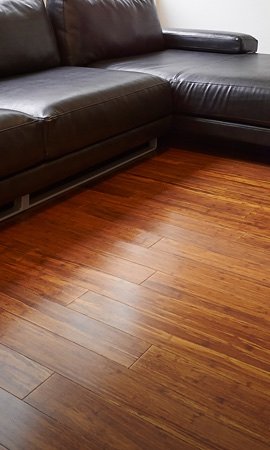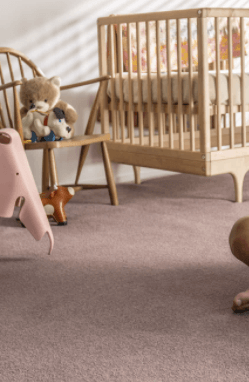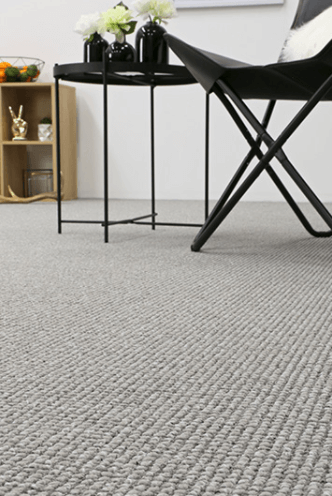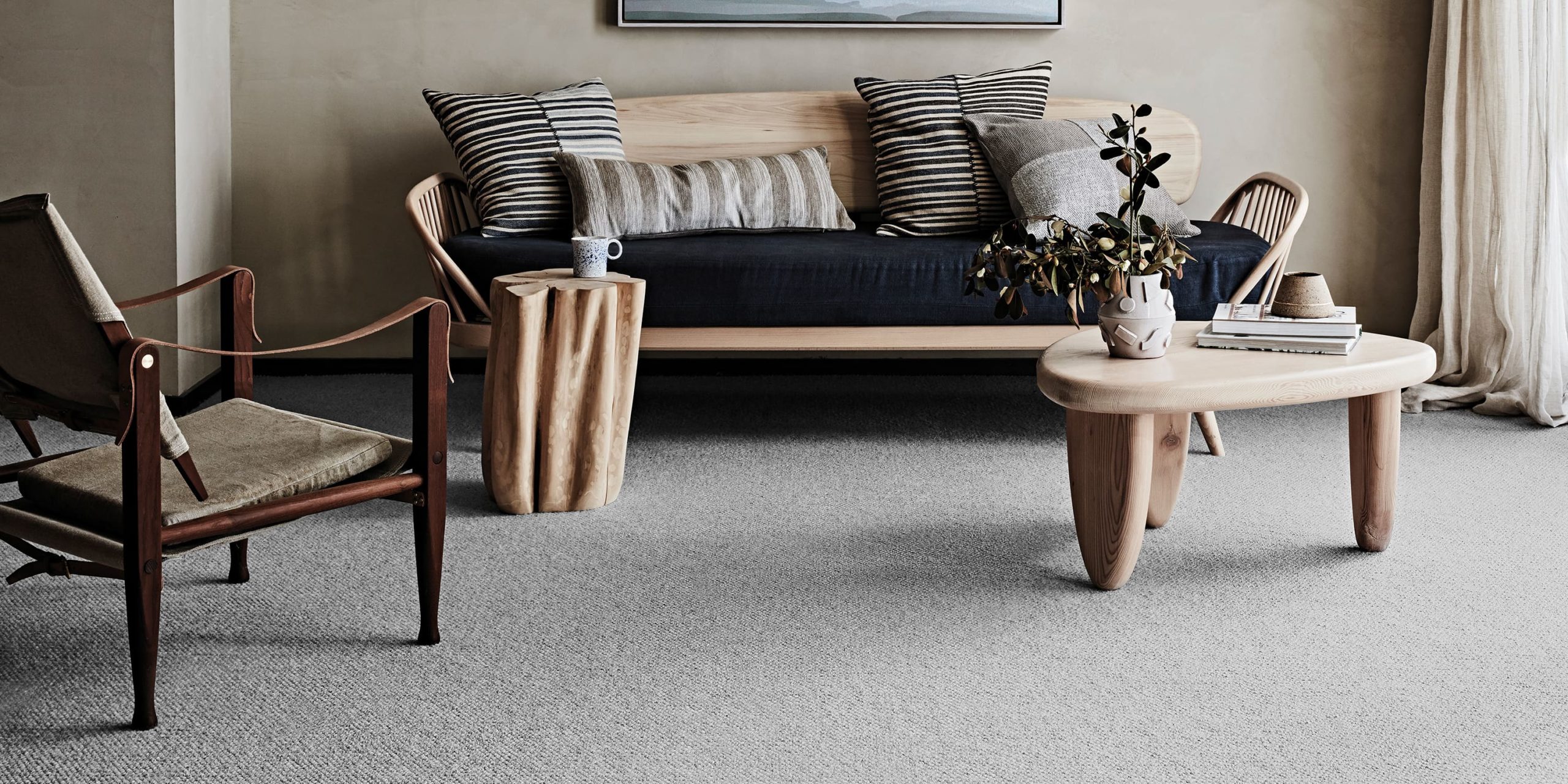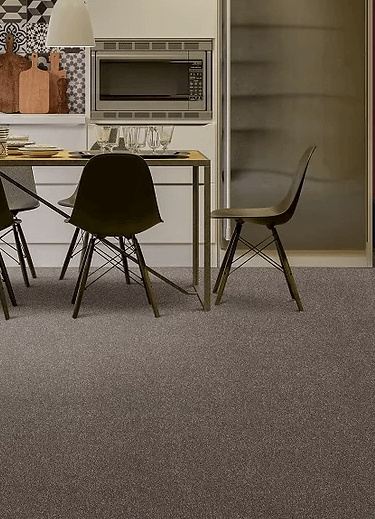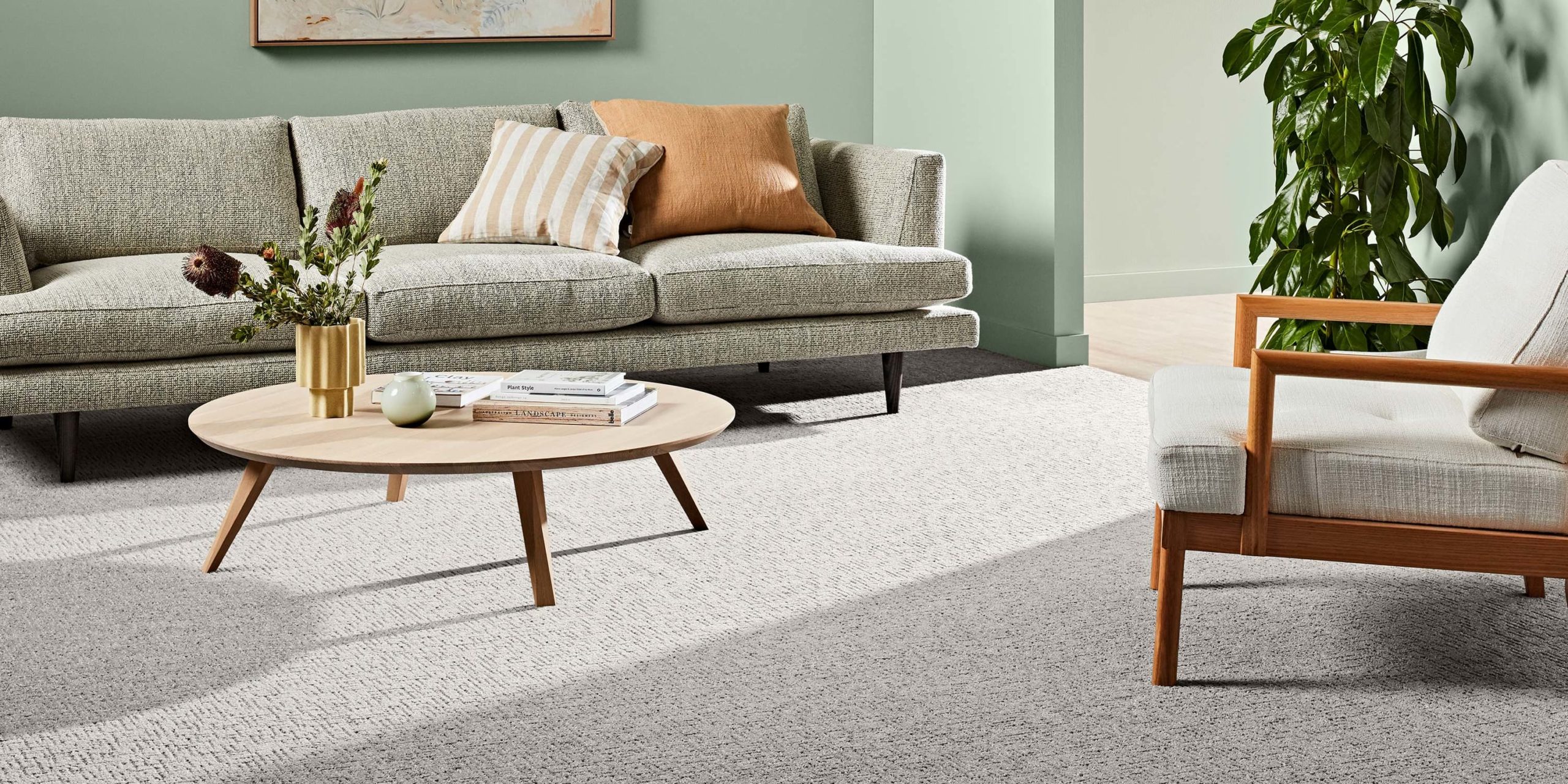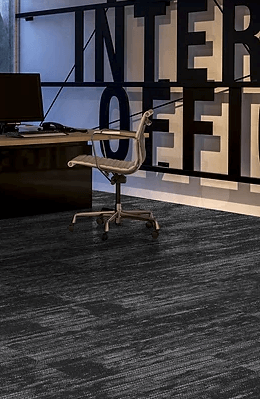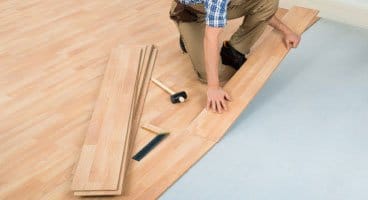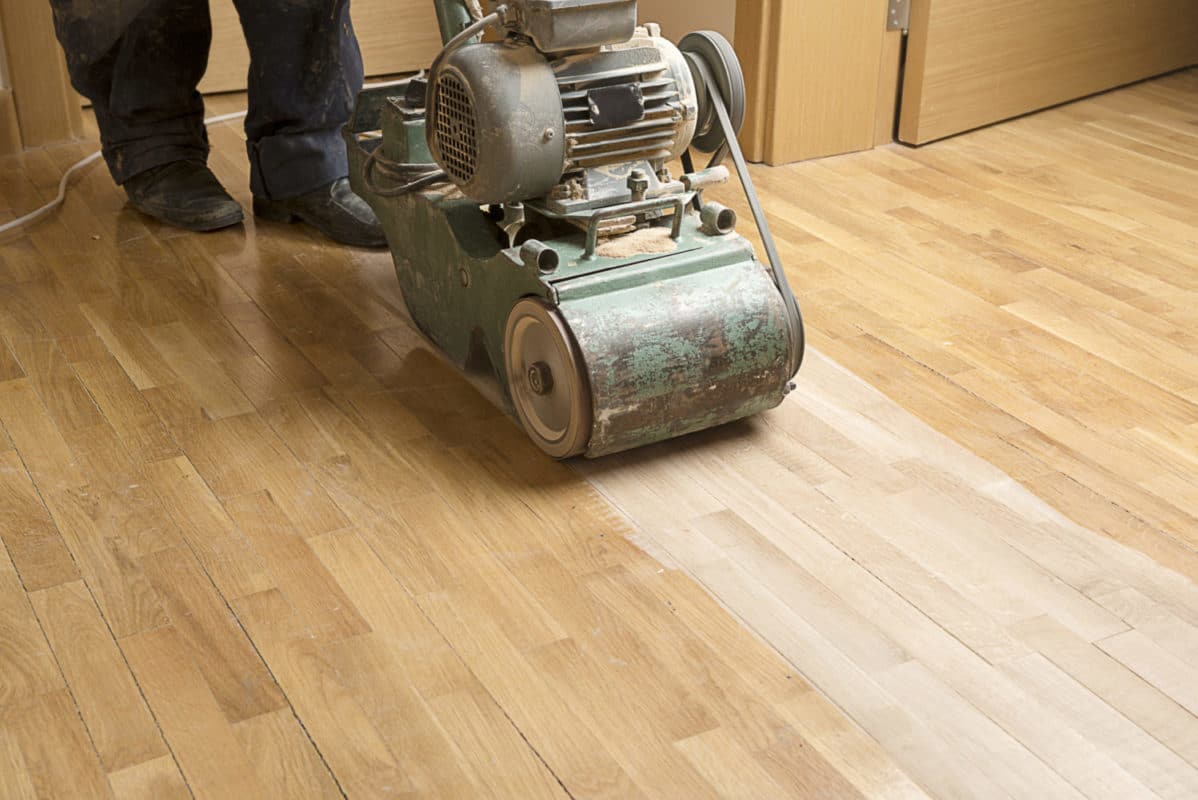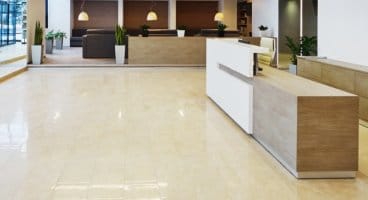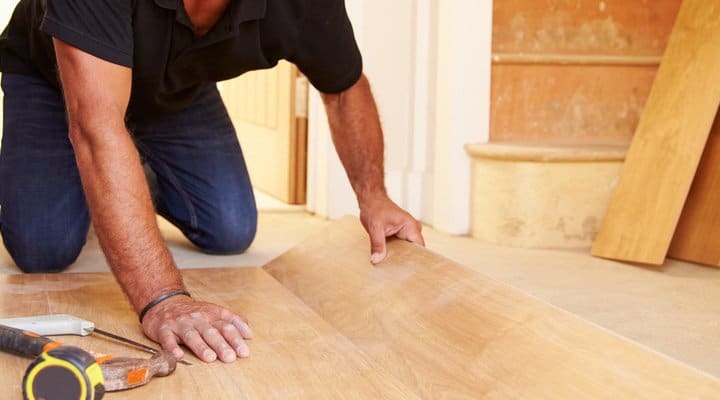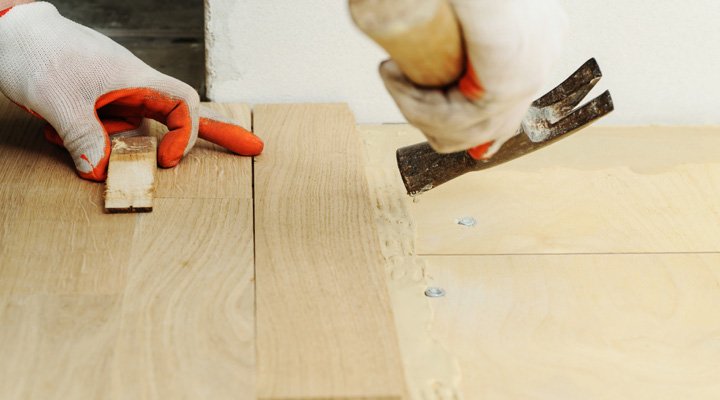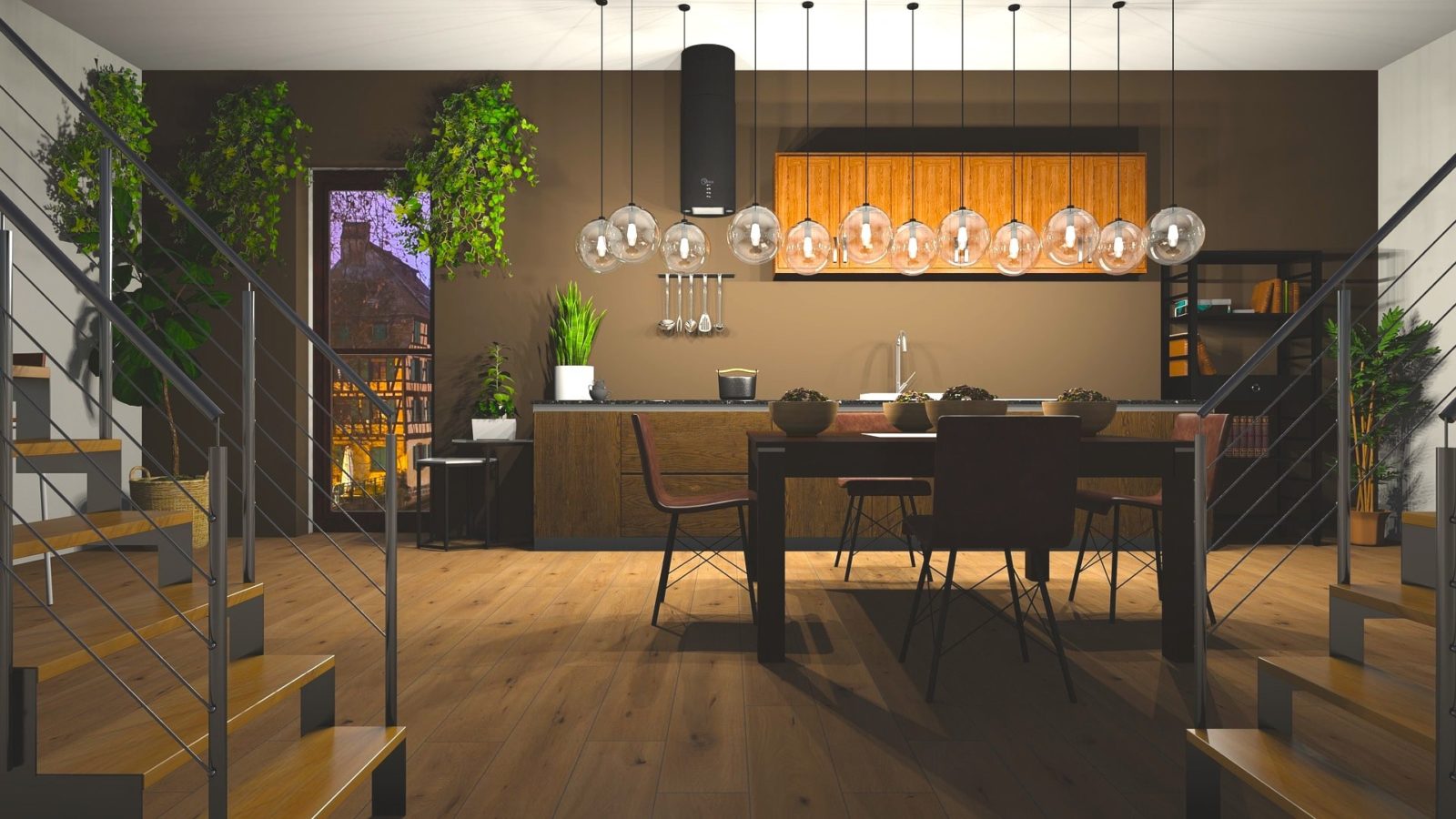

20 Sep The Best Kitchen Flooring Options
When designing a kitchen, most people immediately start thinking of ovens, stoves, and lots of bench space. However, it’s just as important to point your eyes downwards and take a good hard look at the flooring beneath your feet. Kitchen flooring is a crucial piece of the puzzle. Getting it right can save you an enormous amount of pain in the long term.
Why is kitchen flooring so important? Naturally, you might be thinking that the kitchen floor is just like any other flooring you’d find in your house. This is a common mistake. The kitchen is such a unique space, and with that brings a whole range of needs that are specific to this portion of your house.
A great example of the difference in needs between a kitchen floor and other forms of household flooring is water resistance. Sure, any household flooring can become exposed to water, it’s just a natural part of living. But for kitchen flooring, water resistance is something you need to pay specific attention to. If you were to utilise laminate flooring, for instance, there’s a chance you’re going to encounter problems arising specifically due to water exposure.
Additionally, you’re going to want something that feels great underfoot. Particularly, if you’re somebody who really likes to bake or cook, you’re going to find yourself putting in many hours standing on your kitchen floors. To keep your cooking a pleasant experience, the floor below your feet needs to be comfortable. This is where doing your research and identifying kitchen flooring comes into play. A flooring option such as hybrid floors uses an underlayment to support your feet as you walk or stand, giving you the best possible feeling while you’re whipping up those culinary creations.
You’re also going to need kitchen flooring that can withstand a lot of action. Feet are going to constantly be trampling across it, and the kitchen is the most popular spot in the house for dropping things. To make sure the flooring in your kitchens stays as beautiful as the day it was installed, you need something reliable and durable. This aspect makes hybrid flooring and hardwood timber flooring great choices for your kitchen flooring.
Everybody’s least favourite part of cooking is the post-meal clean up. It’s a necessary evil that comes along with the joy of being in the kitchen. To save yourself hours of headaches, you need a kitchen flooring product that is easy to clean. Yet again, hybrid floors are a great choice for this, as they are easy to clean thanks to their waterproof nature. The same thing applies to vinyl flooring in your kitchen. You’ll also find that timber wood flooring is easy to clean because it doesn’t trap dust or grime.
Kitchen Flooring Options:
Solid Timber Flooring for Kitchens
Solid timber flooring (or solid wood flooring) is an ever-reliable choice and, unsurprisingly, makes for a great kitchen floor. It can be hard to match the visual aesthetic of a natural timber floor, but it’s much more than a pretty face.
Timber is a brilliant choice for your kitchen floors if comfort is important to you. It feels solid underfoot, provides a stable surface, and in general it’s pleasant to walk or stand on. Furthermore, it radiates natural warmth, helping to keep your entire home, not just your kitchen, comfortable all year round.
Timber floors are also designed to last. With all of the constant action an average kitchen sees on a daily basis, you’re going to need a kitchen floor that can withstand whatever you throw at it. Timber provides a durable flooring option you can rely on. One of the brilliant and completely unique features of timber is that, once it does start to show scuffs or wear and tear, it can be re-sanded and re-polished to make it look brand new again. A good polish and sand can trick anyone into believing your timber kitchen flooring has just been installed. Similarly, you can coat your timber kitchen flooring with a finish like polyurethane to make it even more resistant to the typical wear and tear you expect to see.
Lastly, you won’t have any issues with maintaining a clean surface if you choose to utilise timber flooring in your kitchen. The natural design of timber floors means that grime and dust are not trapped, allowing you to simply sweep or mop your kitchen floors occasionally to keep them sparkling clean.
Engineered Timber Kitchen Flooring
Engineered timber flooring can seem quite similar to solid timber flooring at first glance, however, it offers a number of key differences that can make it a superior choice for your kitchen flooring. The big difference between the two comes down to the manufacturing processes used, with engineered wood products having a number of man-made characteristics added into the mix during their creation. Depending on the engineered wood flooring used, this can include water resistance and the ability to easily deal with drastic changes in climate conditions. An engineered timber kitchen floor combines the best parts of plywood or a synthetic flooring material with the highly sought after natural characteristics of real timber, creating one ultimate hardwood flooring product.
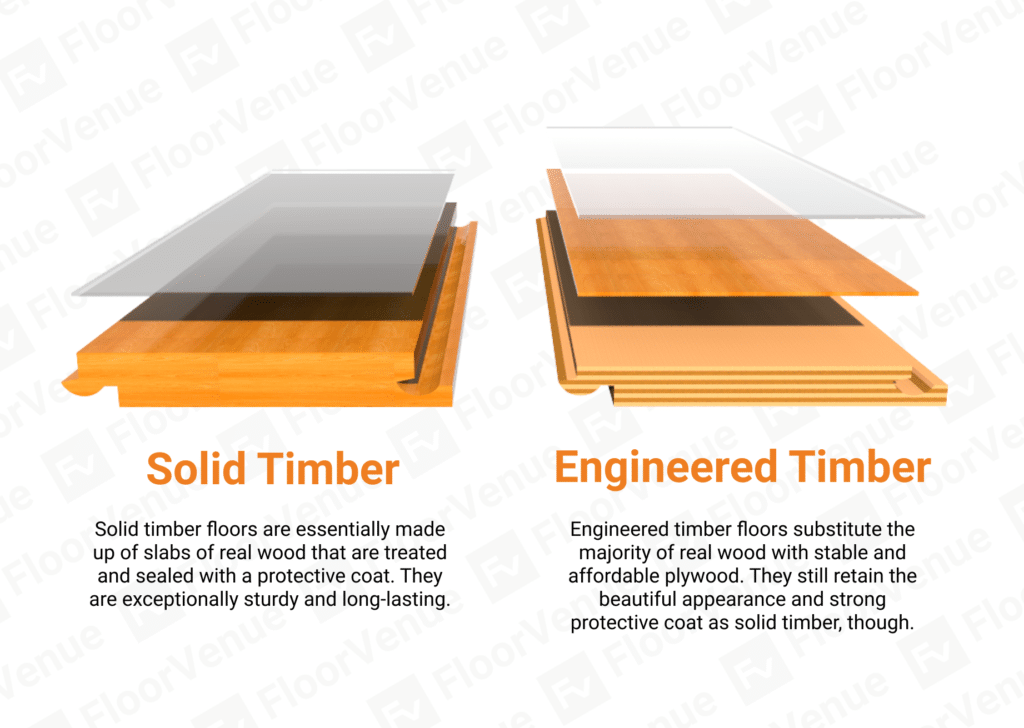

Engineered hardwood floors are made up of three distinctive layers. At the bottom, you have a layered plywood core. This core reduces installation costs, while preventing the expansion and contraction you’d naturally see in wood floors due to environmental factors like temperature or humidity. The next layer is the real timber veneer, before being topped off by a protective layer, safeguarding from scuffs and scratches, and boosting overall durability.
Vinyl Kitchen Flooring
A water-resistant floor is essential for any great kitchen surface, which is where vinyl kitchen flooring really shines. A vinyl floor will deal with moisture easily and is guaranteed to be 100 per cent waterproof. This is because this variety of kitchen flooring doesn’t feature any moisture absorbing pores or fibres, something you can find in real timber or plywood. This results in a completely waterproof surface!
Kitchens with vinyl flooring utilise a top coat that make it hard wearing too. Using substances like aluminium oxide, you won’t have to worry about dropped cutlery destroying your perfect kitchen floor. A vinyl floor is perfectly capable of rolling with the punches and still looking its best.
This durable nature, combined with being waterproof, makes for a kitchen floor that is so simple to clean. Your kitchen flooring is going to see all manner of mess over the years that you use it, but with a vinyl floor there’s nothing that a simple sweep, vacuum, and mop can’t fix.
At FloorVenue, much of our vinyl plank floors have been replaced by hybrid floors (they’re very similar, but hybrid feels more solid underfoot and is more durable).
Hybrid Kitchen Flooring
Hybrid kitchen flooring offers many of the same characteristics of kitchens using vinyl. One of the big advantages of a hybrid kitchen floor that you won’t find in a number of other options is that it’s very easy to install. It uses floorboards that simply click together over your existing floor, dramatically reducing the the cost of installation and preparation, as well as being so much quicker to complete.
Just like a vinyl kitchen floor, hybrid kitchen flooring utilises a protective topcoat and features a waterproof core to provide a 100 percent waterproof product. While they’re not suitable for somewhere like a shower, they are perfect for your kitchen.
Comfort is also an area where hybrid kitchen flooring excels. They’re slightly softer underfoot compared to many other hard surfaces that are used in kitchens, with the springy underlayment making it comfortable to both walk and stand on for extended periods. Plus, the underlayment acts as an insulator too!
Throw in the fact that hybrid kitchen flooring is extremely durable in high-traffic areas and easy to maintain, and you’ve got yourself a ready-made floor option for your kitchen.
What is the best flooring for a kitchen?
While there are many flooring types that can be used for a kitchen, our top recommendation for kitchen flooring comes down to floor tiles, hybrid & vinyl flooring, solid timber flooring and engineered timber flooring. These four choices provide the best balance between all of the characteristics essential for creating a kitchen that is functional, comfortable to use, and easy to maintain or clean.
However, this doesn’t mean you can’t explore and utilise other options effectively. A laminate floor with high water resistance can also be a fantastic choice, provided it has adequate water resistance, will give you excellent results.
Kitchen Flooring FAQs
Is hybrid flooring good for the kitchen?
Yes! Hybrid kitchen flooring is one of the best choices you can make for your kitchen. The protective topcoat keeps it safe from water and moisture, at the same time offering comfort and easy maintenance. Add in the reduced cost of installation and you’re looking at a perfect choice for kitchen flooring.
Is vinyl flooring good for the kitchen?
Vinyl flooring shares many similar characteristics with hybrid flooring, so unsurprisingly it’s also a good choice for the kitchen. If you desire a flooring material in your kitchen that is guaranteed to be water resistant, easy to maintain, and looks gorgeous no matter what you throw at it, you can’t go wrong with choosing vinyl.
Is bamboo flooring good for the kitchen?
In the past decade, bamboo flooring has been an extremely popular choice throughout homes largely due to its visual qualities and environmentally friendly nature. However, despite being an affordable option for your kitchen floor and providing superior durability to many other flooring types, we do not recommend bamboo flooring in the kitchen. The main reason for this is that bamboo floors don’t play nice with water, something that is crucial for a great kitchen floor. You’ll often find bamboo products that offer some level of water resistance, as they tend to have a wax seal that keeps water out. However, to keep your bamboo flooring material from becoming damaged you’ll need to clean up any spills right away, which can be a major hassle compared to the multitude of other options you have at your disposal.
What is the difference between hybrid and vinyl flooring?
Hybrid and vinyl floors share many of the same characteristics, however, they differ in a few crucial ways. Hybrid flooring for the kitchen combine the best characteristics of vinyl and laminate flooring, thus being stronger, more rigid and comfortable to walk on. Hybrid flooring also doesn’t require any gaps in between floorboards, where as vinyl can expand and contract over time, requiring small gaps to be left to avoid buckling. Furthermore, vinyl is available in a floorboard format (vinyl-plank flooring), in addition to the sheet form that can be laid over existing floor, which is what hybrid uses exclusively.
What are the different types of kitchen flooring?
There are a number of different types of flooring that can be utilised in your kitchen. As mentioned, we mostly recommend using tiles, hybrid flooring, vinyl flooring, and timber flooring (solid or engineered). You can also utilise options like laminated flooring in your kitchen, as long as you use a product that features characteristics conducive to a kitchen environment.
